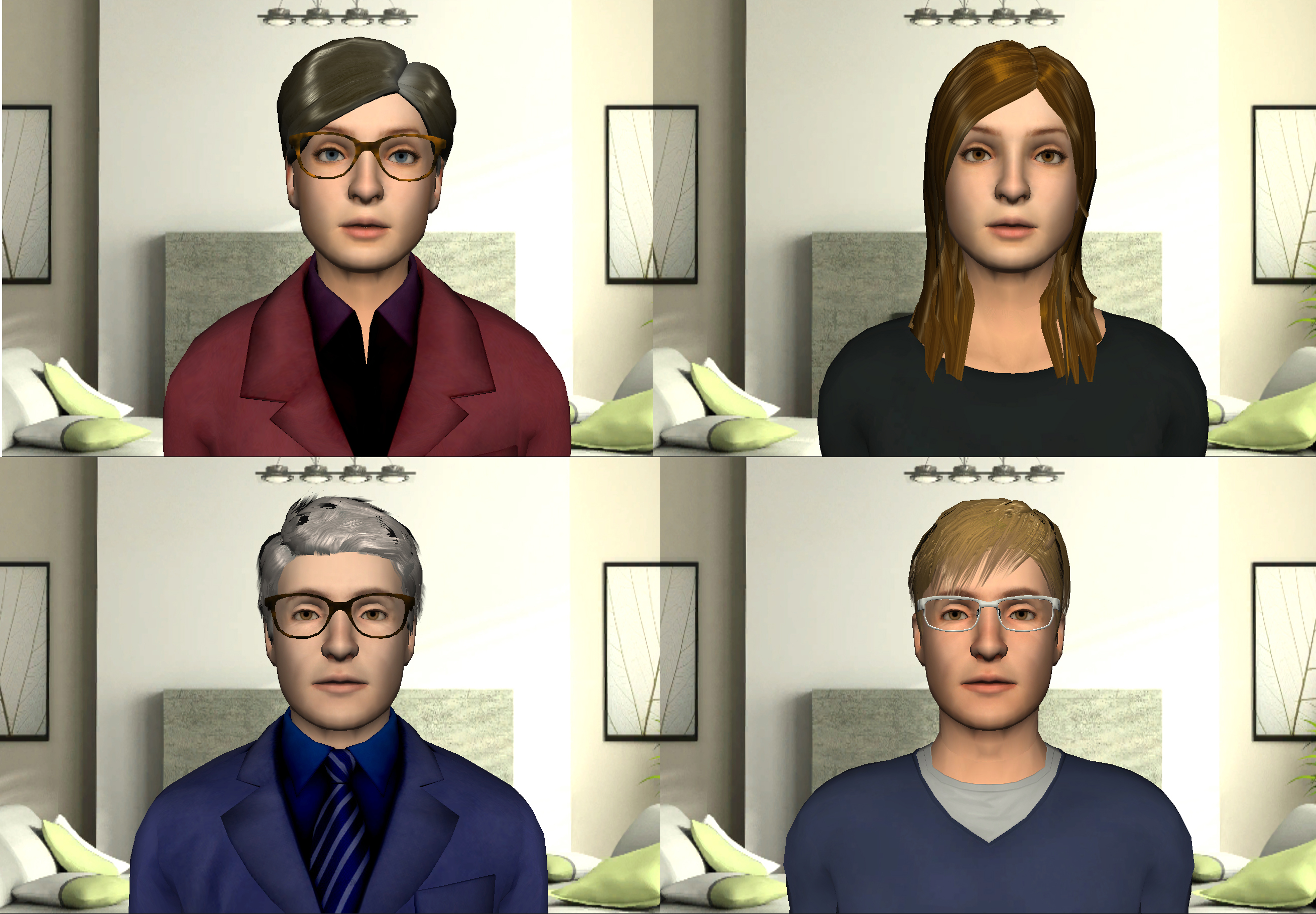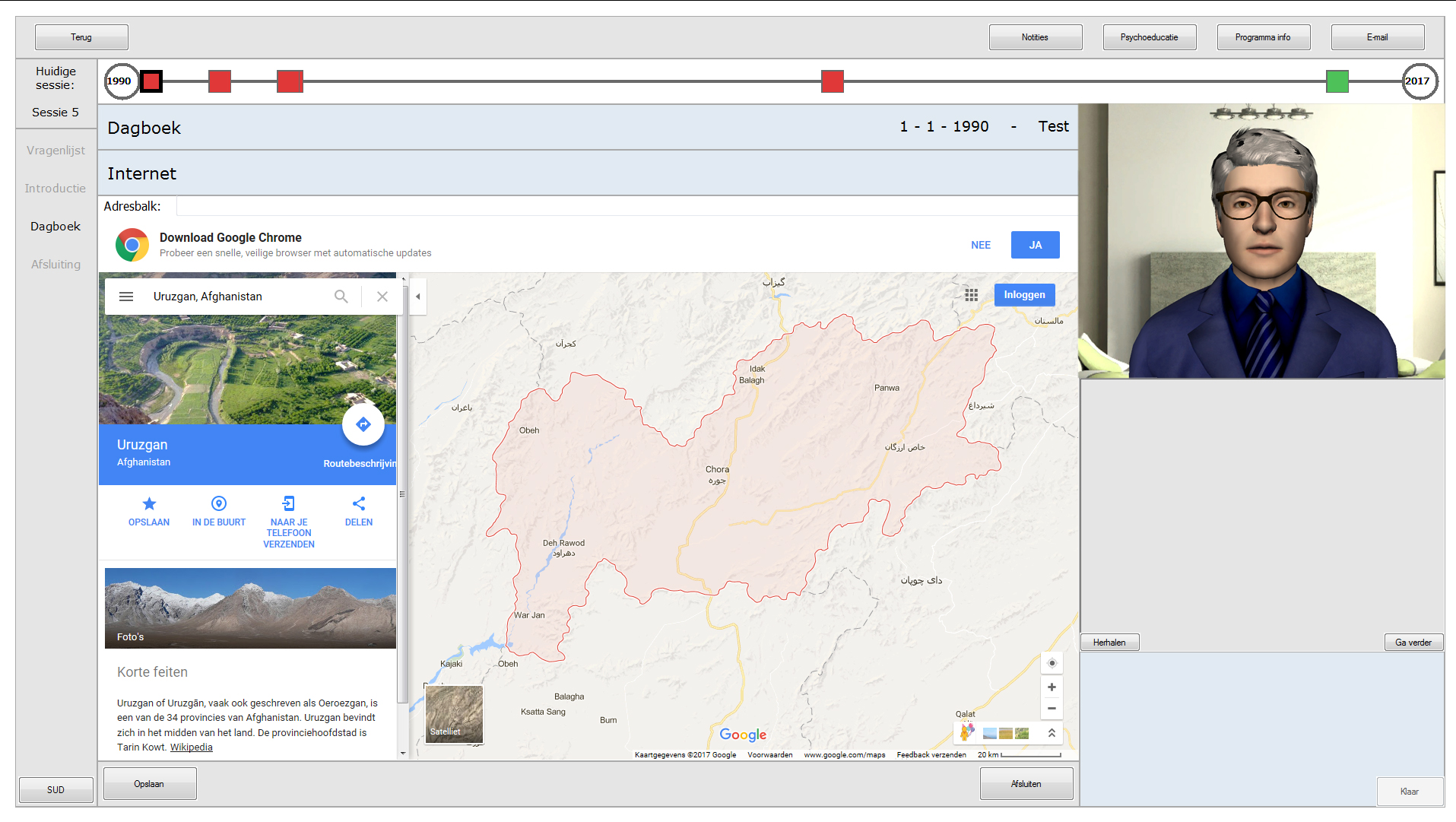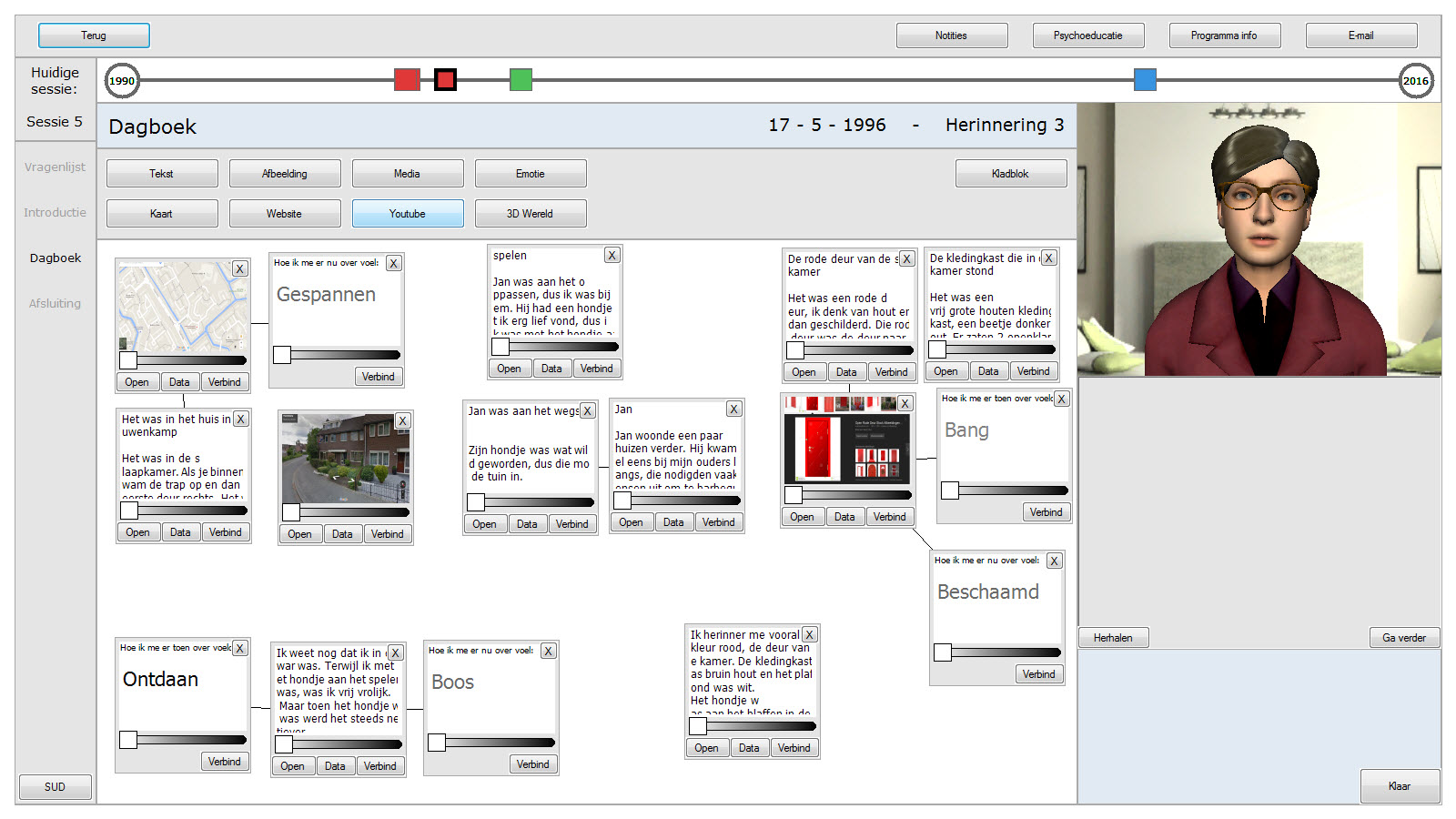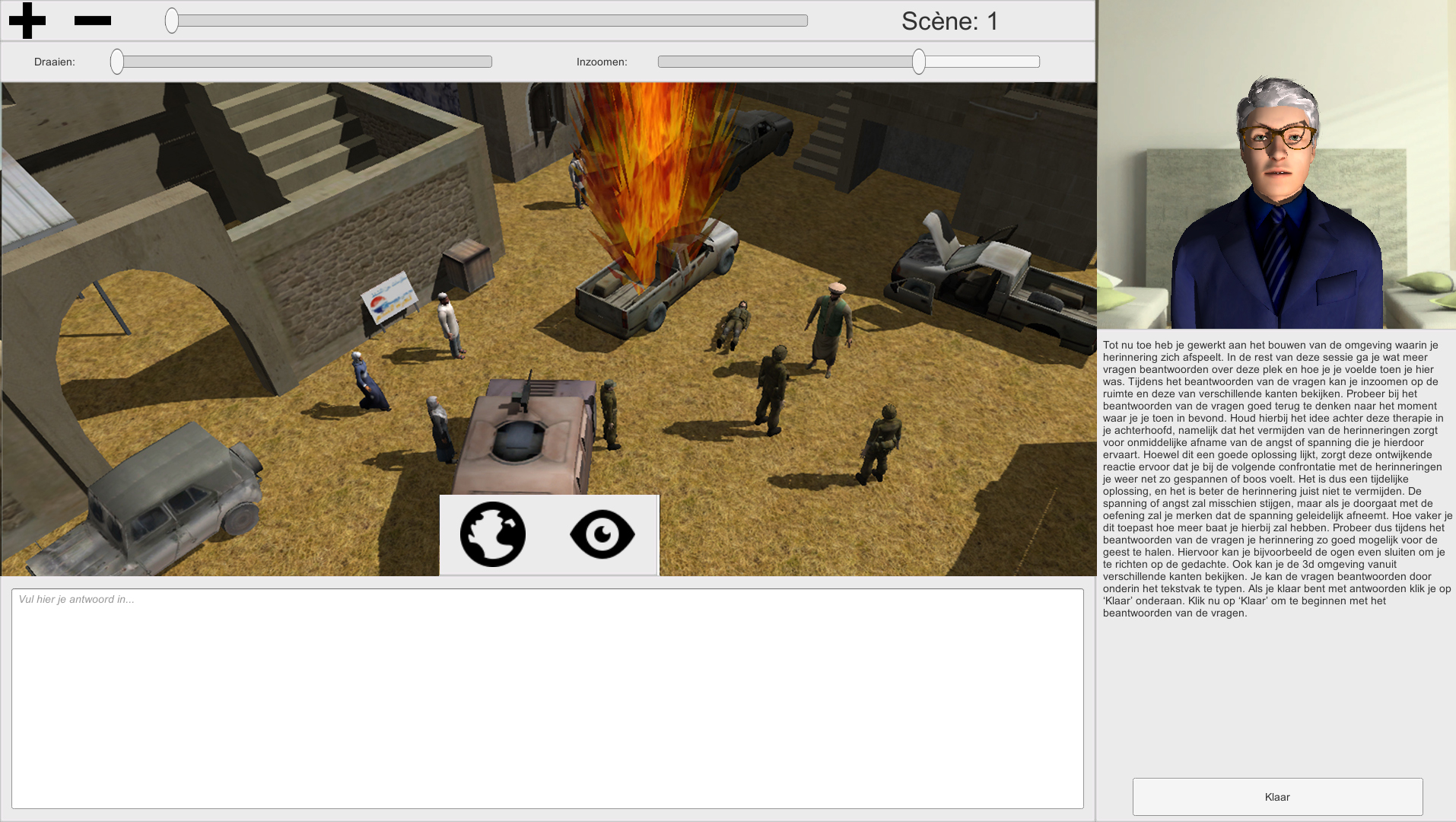In the future, a virtual coach could make a positive contribution to the therapy of people with post-traumatic stress disorder (PTSD), such as war veterans or people who suffered sexual abuse in their youth. Such a coach could motivate people to persist with therapy and help them to recall traumatic memories as part of exposure therapy. The virtual coach was developed by Myrthe Tielman, who will be awarded her PhD at TU Delft on Thursday, 25 January.
Tielman's PhD work is part of a larger project ‘Virtual eCoaching and storytelling technology for post-traumatic stress disorder treatment’ (VESP), that aims to develop home-based treatment for people with PTSD. Within the project, TU Delft is concentrating on the technological development, in particular the development of a virtual coach. Erasmus University Rotterdam is focusing on the clinical evaluation.
‘A computer system of this kind could potentially reduce costs in mental healthcare and offers an accessible way of receiving therapy. For example, the use of e-health applications could provide a solution for people who have to travel long distances, as well as those patients who prefer to keep their experiences private’, explains Tielman. Virtual reality is increasingly being used in the treatment of psychological problems. In the future, the technology developed by TU Delft could be applied to help patients with post-traumatic stress disorder.
Exposure therapy
The virtual coach will target two specific groups: war veterans and adults who suffered sexual abuse as children –groups that have both faced traumatic experiences in their past. Exposure therapy, often used to treat post-traumatic stress disorder, involves confronting the memories of experiences of this kind rather than suppressing them. Tielman has incorporated the clinical practice of this therapy into a computer program. As a result, a virtual coach will now be able to help people to recall traumatic events.
Character
The virtual coach is actually a character on the computer screen. Patients can help to partially create their own virtual coach by choosing its appearance and voice. ‘Sometimes the system determines what the coach will look like, for example in order to prevent the virtual coach resembling the perpetrator of the sexual abuse’, explains Tielman. The human therapist can remotely monitor how the virtual reality therapy is proceeding and contact the patient if necessary.

Targeted interactive questions
‘With the help of targeted questions, the virtual coach assists in effectively recalling the events, the surroundings in which they took place and the feelings associated with them’, explains Tielman. ‘These questions focus on the patient's specific situation. Was the veteran serving in Afghanistan or Lebanon? Did the traumatic event happen indoors or outdoors? Depending on the answers given, the computer system automatically moves to the next step, for example asking about the weather that day or army base served in. As you can imagine, the questions for someone who has suffered sexual abuse are more likely to be about the living room and the perpetrator’.

Motivational texts
Tielman has also been working on how the system can encourage the patient through motivational texts. ‘Examples could include words of reassurance if a patient is struggling or a compliment if the therapy is going well’, says Tielman. ‘These texts are based on the knowledge and experience of therapists with whom we are collaborating. It is thanks to their input that, for example, the computer program now knows that symptoms can sometimes worsen before eventually improving and the virtual coach can respond to this’. Other areas explored include how, in certain situations, the virtual coach could encourage patients to contact a human care provider after all.

3D environment
A diary, in which photos and pictures can be added and emotions noted down, supports the patient in the virtual reality therapy. With the help of the virtual coach, the patient can describe the traumatic memory in the diary. After this, the patient can then recreate this situation in a related virtual 3D environment, developed by the TU Delft Computer Graphics and Visualization group. For example, this could be a recreation of Camp Holland or a child's bedroom in the case of an abuse victim. In their own trusted environment, the patient can then virtually enter the place where the event happened, recall memories and structure them.

Follow-up research
Tielman's PhD research is part of the major NWO-funded research project ‘Virtual eCoaching and storytelling technology for post-traumatic stress disorder treatment’, also known as VESP. Within the project, TU Delft is focusing on the technological development of the virtual coach. The system has been tested with a small group of former patients and students. Erasmus University Rotterdam will conduct further tests on the effectiveness of the therapy, including the virtual coach developed in Delft. This will involve close collaboration with clinical specialists at GGZ Delfland, Lucertis, Centrum’45 and Ambulatorium EUR. The consortium is still looking for participants who would like to take part in the research.
More information
Myrthe Tielman's PhD thesis: ‘A Virtual Agent for Post-Traumatic Stress Disorder Treatment’, DOI: 10.4233/uuid:21756661-2d92-447d-8ac7-0cd2b1b6dc8b.
The VESP-project.
Apply to take part in the research via Ambulatorium, Erasmus University Rotterdam.
Video explanation of virtual reality therapy for veterans.
Video explanation of virtual reality therapy for victims of sexual abuse in their youth.
Contact
Myrthe Tielman (TU Delft PhD candidate), m.l.tielman@tudelft.nl, +31 (0)6 43545851
Willem-Paul Brinkman (Myrthe Tielman's co-promotor), W.P.Brinkman@tudelft.nl, +31 (0)15 2783534
Mark Neerincx (Myrthe Tielman's promotor), M.A.Neerincx@tudelft.nl , +31 (0)15 2787106
Claire Hallewas (TU Delft media relations officer), c.r.hallewas@tudelft.nl, +31 (0)6 40953085
